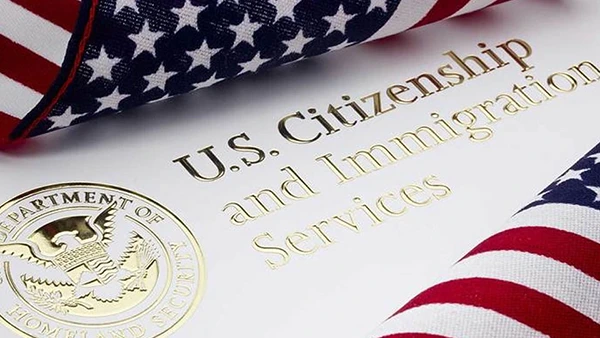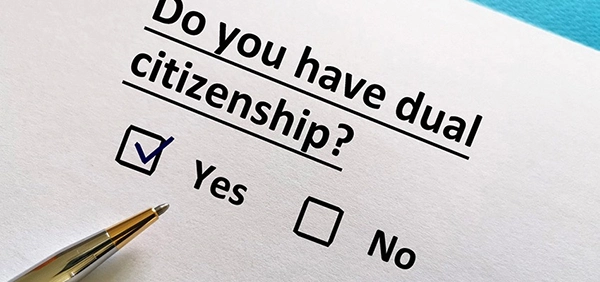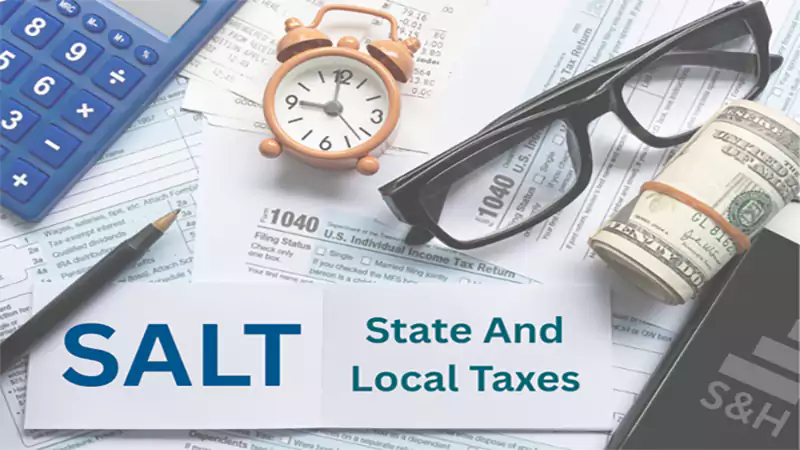Are you someone who has dual citizenship, yet you are unaware of tax obligations you must adhere to? Don’t worry, I’m here to tell you everything that you need to know. But what exactly is dual citizenship?
According to ResearchGate, “The status of dual citizenship that occurs when an individual holds the legal membership or the status of a national of more than one country simultaneously and is eligible to the economic, social and political rights of those states, in return to the fulfilment of the obligations imposed upon the individual as citizens of both of the states”.
In this article, I’ll talk about the tax obligations that come with dual citizenship. You should know it’s an important write-up as it can save you from certain things.
Understanding Dual Citizenship and Tax Obligations
There are several things that you need to understand about dual citizenship and tax obligations, this includes:
Legal Implications of Dual Citizenship
Legal implications usually involve military service, filing taxes, and voting. If you hold U.S. citizenship, you’ll have to report your income regardless of where you reside. You might also face penalties if you fail to comply.
You need proper knowledge and awareness, so there is no room left for any mistakes because it can be costly.
Citizenship-Based Taxation vs. Residency-Based Taxation
Tax filing is a major thing and it can’t be avoided. You have to find out whether a country uses residency or citizenship-based taxation. If you have U.S. citizenship, then you must report your global income to the state. It doesn’t matter if you are living in any other country, you still have to do it.
Many countries use residency taxation, where individuals pay taxes according to where they are currently living. You must understand these systems carefully so that you can make timely reports related to your income.
Special Considerations for Saint Lucia Passport Holders
You can get citizenship through different programs like the Saint Lucia passport via the CIP (Citizenship Investment Program). But, before opting for any such service, you must evaluate how the tax system interacts with your country.
Saint Lucia usually uses residency-based taxation, which simplifies things for you if you are not a resident. However, those who have U.S. citizenship must adhere to the tax laws of the states.
Navigating US Tax Compliance for Dual Citizens

If you have dual citizenship, then you should know about U.S. filing requirements. You must make the best out of your tax credit so you can reduce what you owe, and you must report your foreign income. Other important aspects include:
Filing Requirements and Deadlines
As a U.S. citizen with dual citizenship, you are required to file an annual federal tax return. In this case, Form 1040 is used. There is a deadline which is April 15 of every year and by then you must fill it out. But, if you are an overseas taxpayer, there can be an automatic expansion.
You must also be aware of the Foreign Account Tax Compliance Act (FATCA), under this act your foreign asset holdings need to be reported if they exceed certain thresholds. If you fail to do so, penalties will be applied. Just to be on the safe side, check the IRS guidelines if there are any changes in rules or deadlines.
Reporting Foreign Income and Accounts
The U.S. law states that all your worldwide income should be reported apart from what you earn in the state. Dividends from foreign sources, interest, and wages are all included in this. You can take benefits through the Foreign Earned Income Exclusion (FEIE).
It enables you to exclude a certain portion of your foreign wealth, which reduces taxable income. You are also obliged to report your foreign financial account if they are exceeding over $10,000 at any point in the year.
Foreign Bank Account Report (FBAR) will help you with it. Again, not doing so will cause you some serious trouble, so maintain the records properly. Both the IRS and FATCA have specific guidelines for what should be done.
Utilizing Foreign Tax Credits and Exclusions
Foreign Tax Credits (FTC) can be beneficial for you, as you get your double taxation reduced, because of the tax credit which you earned by paying taxes to another country. Your U.S. tax liability will be lessened thanks to this tax credit.
Strategies to Prevent Double Taxation

Certain ethical strategies can help you prevent double taxation. It’s important as you’ll have less burden on your shoulders. Here are some effective strategies:
Understanding Tax Treaties and Totalization Agreements
Countries have tax treaty agreements between them, this clarifies which country has the primary tax rights or specific income types. As a dual citizen, this helps you, and you don’t have to pay double the taxes on the same income.
Totalization is a special agreement and its main focus is social security taxes. They assist you with avoiding paying multiple social security systems when you work in different countries. If you are able to understand both of them properly, you can see a major decrease in your payable taxes.
Maximizing Benefits from the Foreign Earned Income Exclusion
As mentioned earlier, Foreign Earned Income Exclusion (FEIE) enables you to exclude a certain portion of your income that you’ve earned outside. Its limit changes almost every year, so make sure to stay updated.
But you must qualify for it by meeting certain IRS guidelines like bona fide resident test, or physical presence test.
Housing Exclusions and Deductions
If you are living and working abroad, then there’s a chance that you might qualify for excluding or deducting certain housing costs from gross income. This includes utilities, rent, or other housing expenses, incurred from living outside the U.S.
You can get this perk by meeting certain criteria, but if you do it you’ll get quite a relief. If you are from ASIA and wondering which country in this region permits dual citizenship then take a look at the infographic below.

Handling Special Situations in Dual Citizenship

As a dual citizenship holder, you’ll be met with complex tax situations. You can tackle them if you understand the intricacies of filling compliance for accidental Americans. Apart from that, renouncing U.S. citizenship and the benefits you get by working with a CPA. Learn about all these below:
Accidental Americans and Compliance Procedures
Firstly, you should be aware of what accidental Americans are, these are individuals who were unaware that they held U.S. citizenship. They discover it through their parents or birth in the U.S.
Such situations often result in unexpected tax obligations. People might face challenges with U.S. tax laws like reporting foreign accounts or filing returns. In such cases, you can get help from Streamlined Filing Compliance Procedures.
They’ll assist you with catching up on your past tax filing while avoiding any penalties. But, they’ll need several documents, for instance, submitting several years of return and paying any owned tax.
Renouncing U.S. Citizenship and Exit Taxes
If you are thinking about renouncing your U.S. citizenship it’s a big step, that will simply your tax obligation. But it includes some complexities when it comes to exit taxes. This tax is usually applied to wealthy individuals who didn’t play by the rules of the government and didn’t pay taxes.
Evaluate personal and financial outcomes before you go forward with it. This process will require certification of tax compliance and assessment of the net worth of the last five years. You can reach out to a professional advisor who can help you navigate the situation.
Tax Planning and Consulting with an Expat CPA
Dual citizenship taxation is hard to deal with and this is why you should rely on an expert of an expat CPA. They’ll assist you with managing your tax responsibilities for both countries.
Filling annual returns, ensure proper reporting and understanding tax treaties will become seamless because of expat CPA.
Common Forms and Documentation for Dual Citizens

There are some common forms documents that need to be filled by individuals with dual citizenship. Including:
FBAR and Other Financial Account Reports
FBRA must be filled if you have more than $10,000 in your foreign bank account. FBRA or Foreign Bank Report Account is known as FinCEN Form 114. It includes details of any foreign securities or financial accounts.
It needs to be filled by April 15 and failing to do will result in penalties. This form discloses your accounts to U.S. Treasury, and it also compliments those forms that we with the IRS.
Apart from FBRA you might need Form 8938 aka Statement of Specified Foreign Financial Assets. Unlike FBRA this needs t be filled if your accounts are exceeding $50,000.
Key IRS Forms for Tax Compliance
There are some key IRS forms that one must fill, such as:
- Form 1040: It is a standard federal tax return form, and it must be filled by those who have dual citizenship.
- Schedule C: Those who make self-employment income need to report profit and business of their business.
Another is Form 8938 which we talked about in the previous heading. You need to make sure that you are able to fill and file them on time.
Documentation for Foreign Tax Credits and Deductions
If you’ve paid taxes to a foreign government, you might qualify for FTC or Foreign Tax Credits. To receive it, fill out Form 1116, but gather documentation of foreign deduction and credits.
To support your claim, collect tax bills and receipts of the foreign country. They’ll play a major role at the time of audit. For managing your dual citizenship, you should visit https://globalresidenceindex.com/ to get better insights.
DID YOU KNOW?
Almost 49% countries in the world allows dual citizenship.
Conclusion
As a person with dual citizenship, you are met with certain tax obligations that are unavoidable. And you must comply with both the countries to avoid legal consequences.
You need to be prepared for everything that might be coming on your way and have a proper plan. And if things are getting hard for you or getting out of hand, don’t be shy to seek professional help.





